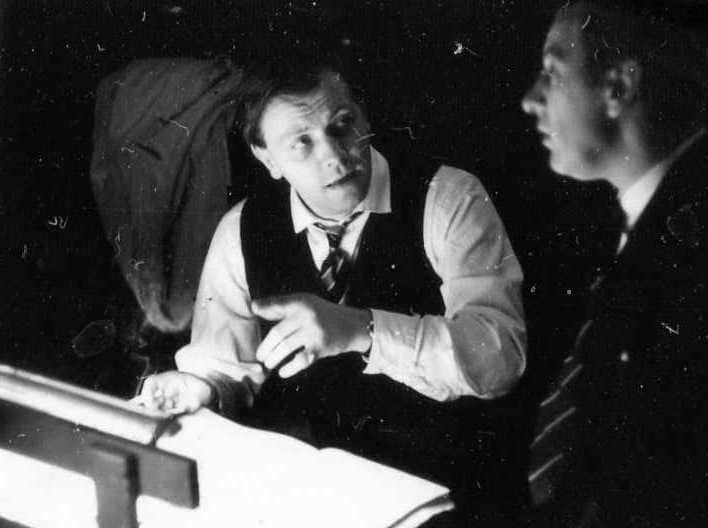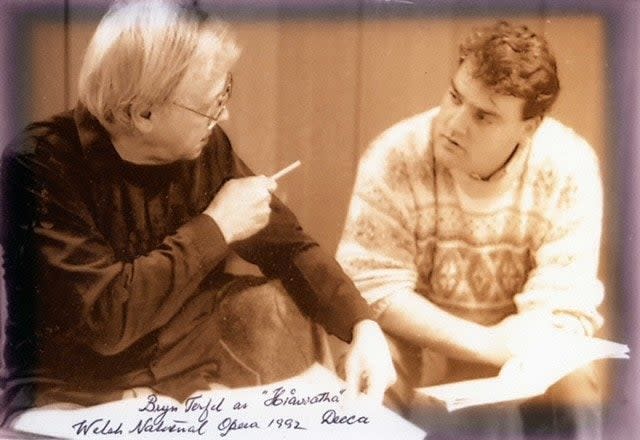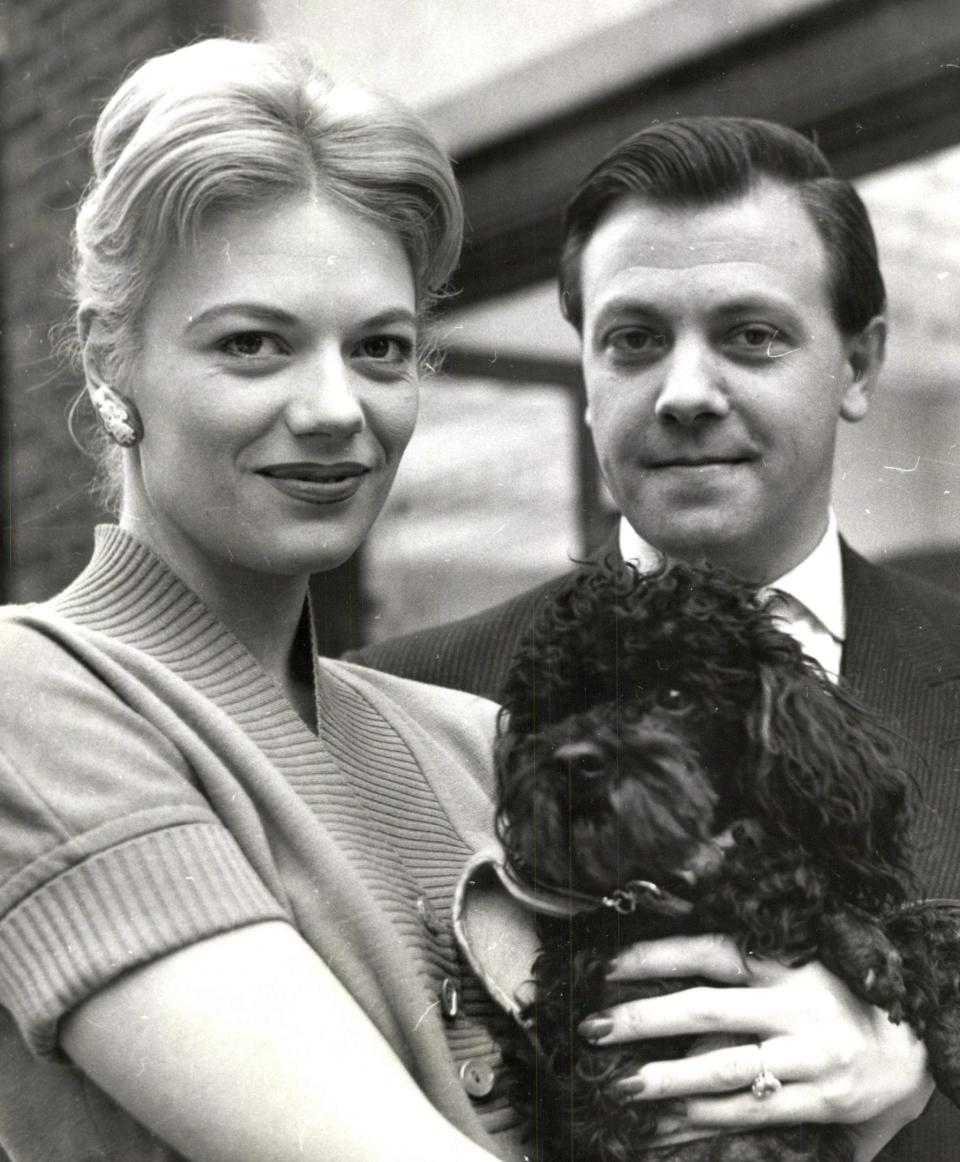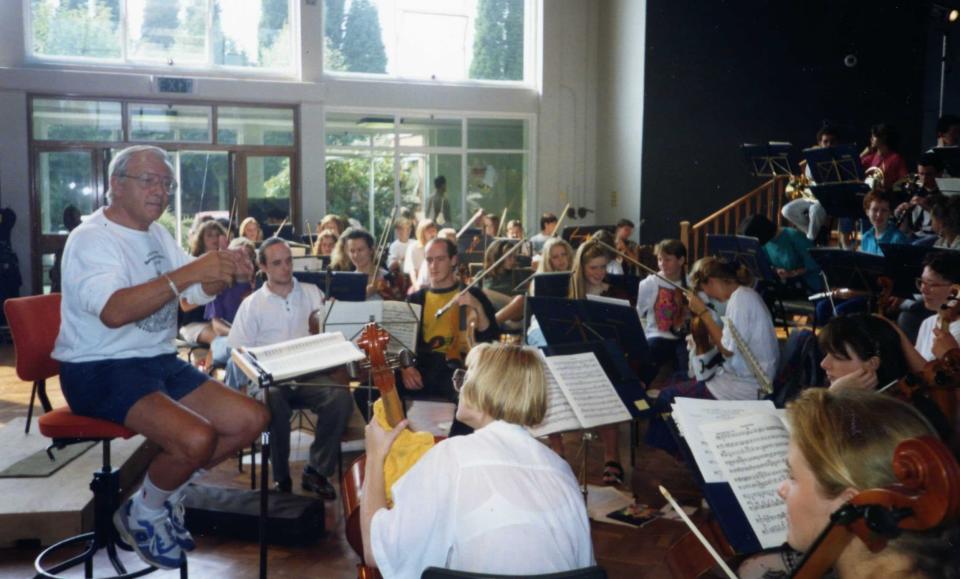Kenneth Alwyn, leading light of the British music scene noted for Friday Night is Music Night – obituary

Kenneth Alwyn, who has died aged 95, was an orchestral conductor who appeared with the BBC Concert Orchestra on Radio 2’s Friday Night is Music Night for 30 years; he conducted the Japanese premiere of Holst’s The Planets, accompanied Margot Fonteyn and Rudolf Nureyev dancing at the Bath Festival; and took over performances of Benjamin Britten’s ballet The Prince of the Pagodas from the composer after the work’s premiere in 1957.
The following year Alwyn conducted a thrilling account of Tchaikovsky’s 1812 Overture that famously includes a slowed-down recording of gunshot instead of cannon fire. The disc, featuring the London Symphony Orchestra and the band of the Grenadier Guards, has remained a mainstay of the Decca catalogue and was reissued as recently as 2012

Much of Alwyn’s work was in the West End, where he conducted The Crooked Mile at the Cambridge Theatre in 1959 starring Millicent Martin, The Most Happy Fella at the London Coliseum (also 1959) and a couple of Sir Tyrone Guthrie’s Gilbert & Sullivan productions, HMS Pinafore and The Pirates of Penzance, at Her Majesty’s Theatre in 1962.
There were recordings of musicals such as Oliver!, Carousel and Guys and Dolls, while on television he took part in the BBC series The Orchestra.

He claimed to have had a hand in creating the Goons with Bob Monkhouse, whom he had known in the RAF. The pair of them staged a “comedy carnival” at the Cabin Club for a group of unknowns including Peter Sellers, Spike Milligan and Benny Hill; afterwards Sellers and Hill stayed on to see Michael Bentine perform and before long the Goons had emerged.
Alwyn also collaborated with Dudley Moore on the actor and musician’s final tour in 1992, recalling that they were playing a Mozart piano concerto in Brighton when the performance ground to a halt because Moore had lost his place.
Moore turned to the audience and announced: “At this point, Mozart died”, and then asked Alwyn: “Ken, if he’d lived, how do you think he might have continued?” Alwyn sang the second theme for him and Moore sat down to continue with a faultless performance. “I still think there are people in Brighton who aren’t quite sure if it was part of the performance,” Alwyn laughed.

Kenneth Alwyn Wetherell was born in Croydon on July 28 1925, the only child of Beatrice (née Reeve) and her husband John Wetherell, a sergeant with the Cheshire Regiment who during the Great War was gassed three times and wounded twice.
John died in 1934, but before doing so signed his son’s autograph book with a quote from Hamlet; he also bought a wind-up gramophone, playing young Kenneth to sleep with records conducted by Leopold Stokowski who Alwyn would later meet in Japan. Although he had never seen an orchestra, the young Kenneth dreamed of being a conductor.
By the age of 10 he was an orphan, later telling of how he survived by selling horse manure scraped from the street at tuppence a bucket. He went to live with his aunt Maude in Windsor, Ontario, where he started to play the piano seriously.
But he was homesick and soon returned to south London, only to find that Crystal Palace, where he had run as a boy, had burnt down and Edward VIII had abdicated. “It all felt wrong to me,” he said.
He lived with one of his mother’s relatives at Selhurst, singing in the choir of St George’s Church, Waddon, and attending John Ruskin Boys’ School. One of the old boys was Samuel Coleridge-Taylor, who composed The Song of Hiawatha, a work that Alwyn revived at the Fairfield Halls, Croydon, in 1975 and recorded with Welsh National Opera and Bryn Terfel in 1991.

Wartime evacuation led to the dissipation of his church choir and he instead took up the organ, later describing it as his “first love”. He joined the RAF at 17 and was flying aircraft before he had learnt to drive, but was transferred to the air ministry. At the age of 19 he attended his first concert.
In 1947 he was awarded a scholarship to the Royal Academy of Music, where he won the Manns memorial prize for conducting. He took a series of odd jobs, appearing as an extra in Rank films and on the West End stage.
He recalled the critic Sir Beverley Baxter, whose own play had been booed off the stage, writing in his review of Alwyn’s piece: “This is worse than my play.”
On graduating Alwyn was sent to Singapore as a colonial officer at Radio Malaya, but his promised orchestra turned out to be eight Dutch musicians who were former Japanese prisoners of war. “The last thing they wanted was some smart-arse from England pointing a stick at them,” he said.

By 1952 he was in New Zealand conducting the Royal Wellington Choral Union, but soon returned to London and joined Sadler’s Wells Ballet. There was always time for something lighter and in 1955 he was musical director of the Bristol Old Vic’s pantomime, Dick Whittington, starring Peter O’Toole.
He moved to the Royal Ballet in 1957, but recording, broadcasting and West End opportunities quickly took over , including Friday Night is Music Night on what was then the BBC Light Programme, which he joined as conductor in 1958.
In the early 1960s he joined the Yomiuri Nippon Symphony Orchestra in Tokyo, introducing British music to Japanese audiences, and later became principal conductor of the BBC Northern Ireland Orchestra. During the early 1970s he also presented Melodies for You on Radio 2.

In the 1980s he visited the US with the Mantovani Orchestra, performing lush arrangements of pop tunes and light classics, and the following decade devised a “Battle of Britain” tour of North America featuring wartime classics with the BBC Concert Orchestra and the Central Band of the RAF. While in Toronto he broke his knee in a fall from the podium and had to complete the trip on crutches.
For that tour Alwyn composed Fighter Command (1940), a march that reflects his own flying experience and is now regularly used by the RAF. He also wrote Concert March: The Young Grenadier, its title relating to a photograph of Princess Elizabeth wearing a Grenadier cap when she became colonel of the regiment in 1942.
It was composed for the Queen’s Birthday Parade in 1992, but without a drumbeat was not suitable for marching troops and instead was played in the forecourt of Buckingham Palace. He received a warm acknowledgement on behalf of the Queen.

His 80th birthday was marked in 2005 with an episode of Stage and Screen on Radio 3 presented by Edward Seckerson and featuring excerpts from his recordings of musicals including The Crooked Mile, Carmen Jones and Jorrocks. He remained a champion of Coleridge-Taylor and in 2013 unveiled a blue plaque at the composer’s former home in Croydon.
Alwyn, a genial and relaxed man as well as a lively raconteur, enjoyed writing poetry, and published two volumes of memoirs. For many years he was an instructor at Shoreham airport, where he was known as Captain Ken. After a broadcast of Friday Night is Music Night he would drive to West Sussex ready to open up the flying club the following morning.
In 1960 he married the actress Mary Law, who also took part in the Battle of Britain tour of the US; she survives him with their two daughters.
Kenneth Alwyn, born July 28 1925, died December 10 2020

 Yahoo News
Yahoo News 
